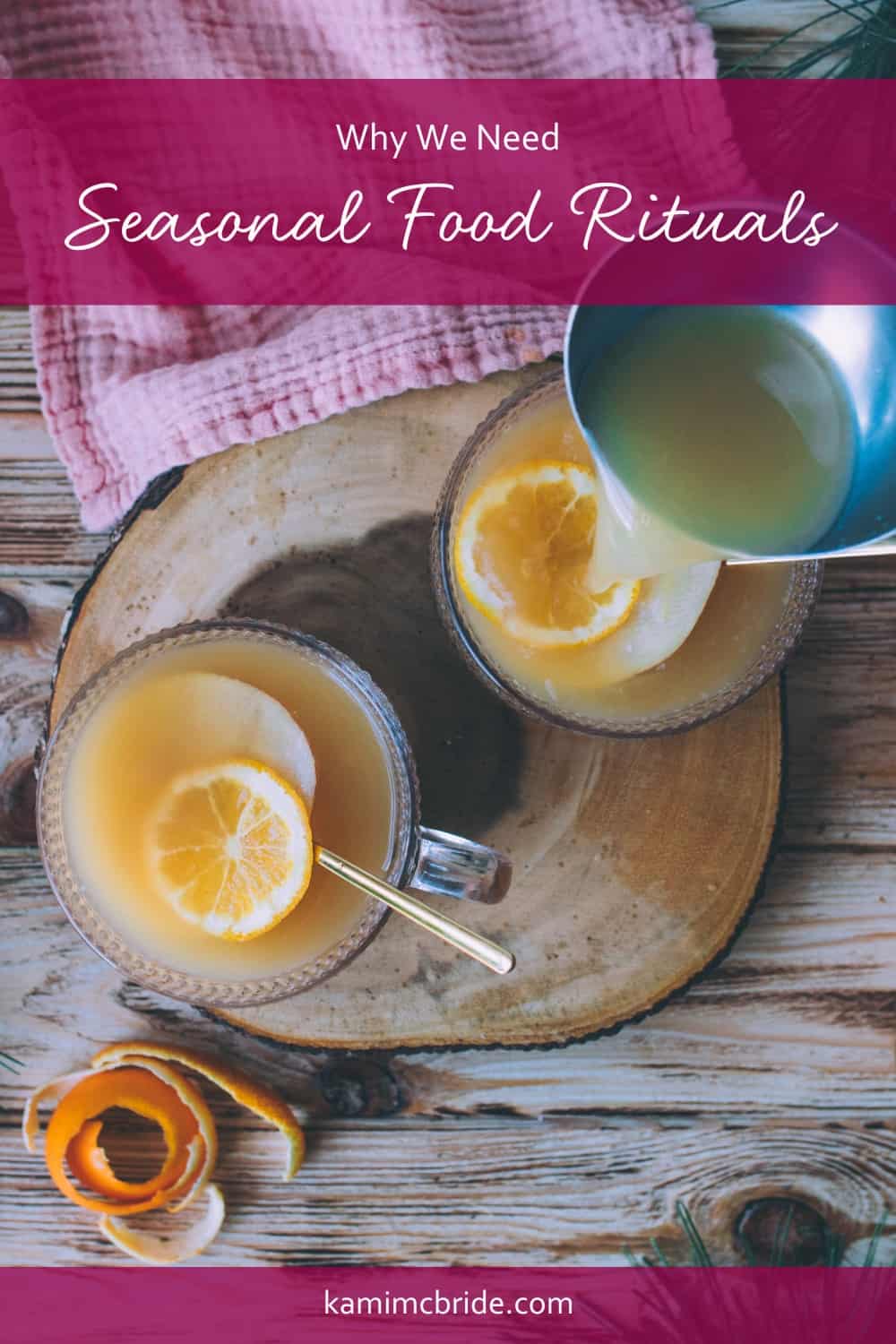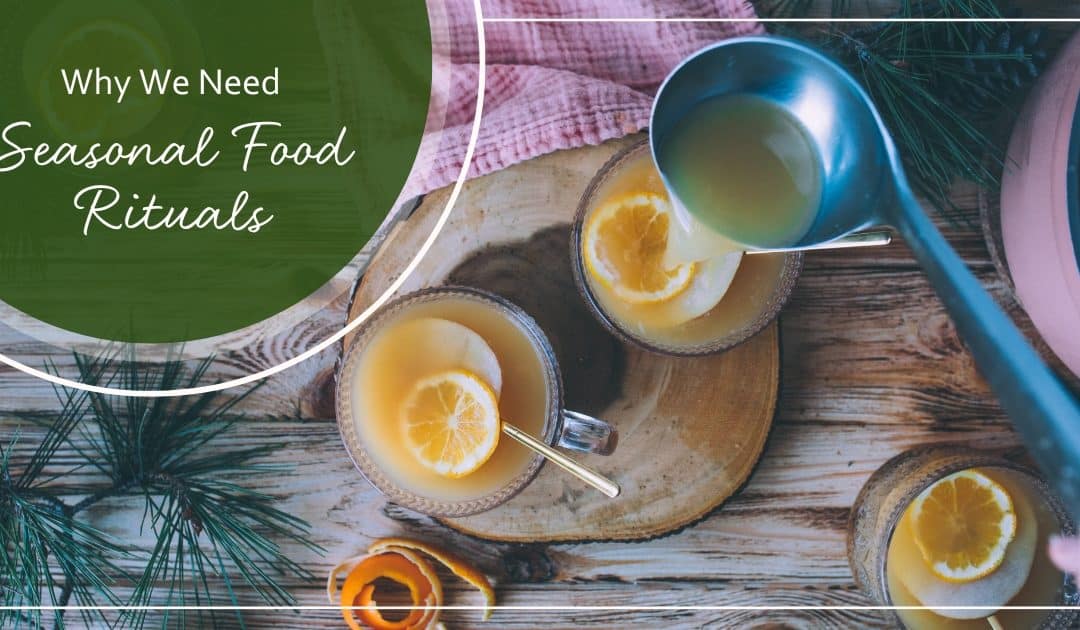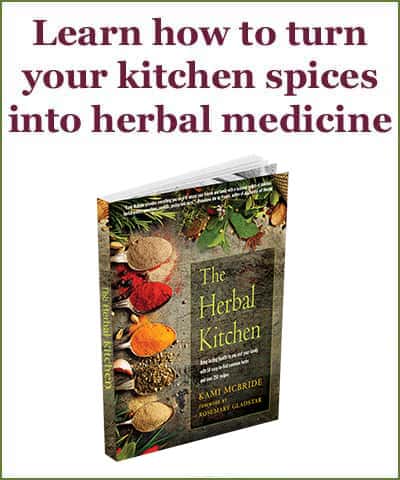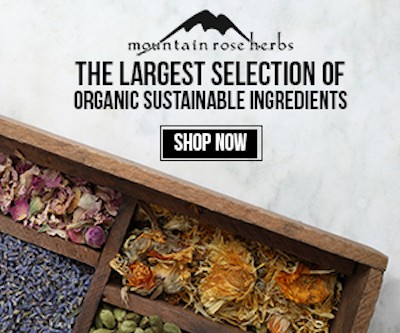The food culture and seasonal food rituals that I grew up with held a vein of richness that is still with me. My dad’s garden never failed to produce an overflow of fresh zucchini and squash. We lived in a town that was known for its rich history of fruit production. There were always trees to pick from, and the farm stands were brimming with each seasonal bounty. We purchased fruit by the box and made pies, cobbler, ice cream, and jam.
My grandfather was a fisherman, and father was an ocean diver. We always had a freezer full of fish and abalone, and many times throughout the year we had fresh seafood feasts, feeding loads of people the most delicious fruits of the sea.
“The turning of the seasons was clearly marked with flavors and aromas specific to each time of year.”
My grandparents kept an annual tradition of harvesting wild mushrooms after the first spring and fall rains. I can still smell the mounds of garlic, onions, and mushrooms cooking in the enormous cast-iron frying pan on their stove. I remember them talking in amazement about how many helpings I could eat. I loved our family mushroom feasts.
This celebration was a high point in our culinary culture, and everything about it is vivid in my mind as if it were yesterday. I can hear the sound of the knives on the wooden chopping board. I see the smiles on my grandparents’ faces and hear the conversation and laughter of family and friends that came out of the woodwork for our holy day of mushroom gluttony. I was so awake and present for this vivacious celebration that centered on the pleasure and excitement of a single wild food.
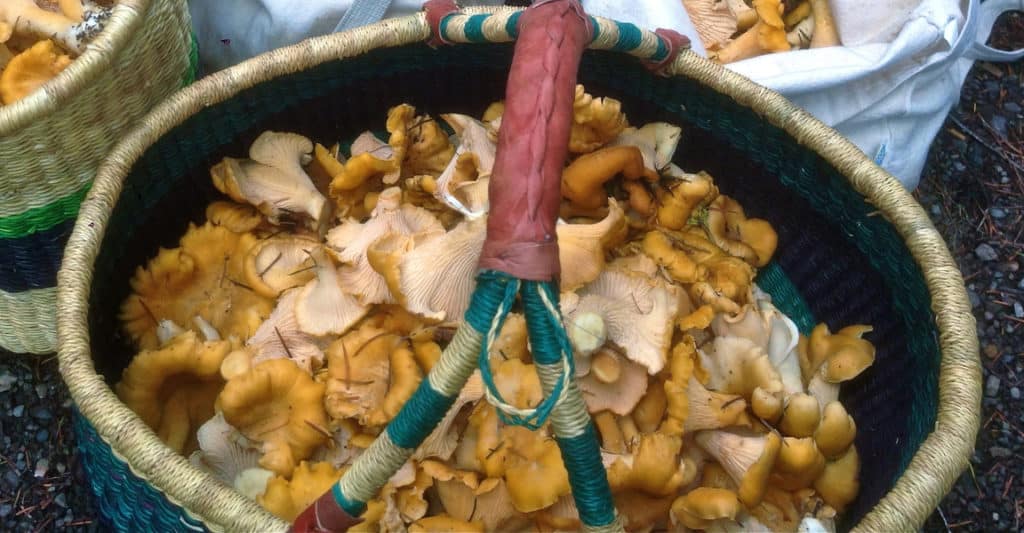
When I was about fifteen years old, this tradition stopped. Development and overgrazing laid waste to the mushroom patches, and there just weren’t as many mushrooms anymore. Even during the final years of my grandfather’s life, he was still searching for mushroom patches to reappear. In the months before he died, we found a small patch of mushrooms together. We brought them home, and I watched him carefully, almost ceremoniously clean them so as not to waste a single piece. I remember sitting at his table, just he and I, humbly savoring our mushroom side dish. They were as delectable as ever, but what an impoverished relic of the fungal feasts of days gone by.
My mother went to work when I was in grade school. Prepackaged meals and processed snacks shared equal space at the table with food from the garden and the wild. Chocolate Pop-Tarts and Cap’n Crunch for breakfast, bologna on Wonder bread for lunch, and hot dog TV dinners for which my brother and I would beg. I can still picture the snack cupboard that we raided after school; it was full of Space Food Sticks, Cheez-Its, Fruit Loops, Ho Hos, and Ding Dongs.

Even though the junk food was plentiful, I was lucky to have had so much local fruit and wild foods to supplement the packaged meals. I grew up surrounded by seasonal food rituals, which at specific times of the year shaped some of the culture of our household. My grandfather was a master ice cream maker and would concoct a batch to honor the onset of each seasonal fruit. It was most definitely the best ice cream on the planet.
In the summer, there was always a cobbler or special jam from the peaches and apricots. Something had to be done with all the summer squash, and late summer meant filling the freezer with zucchini bread. Fall brought walnuts, which we gathered by the bucketful and candied for Christmas presents. Each food had a spice that went with it: nutmeg with peaches, orange zest with the zucchini breads, allspice with apricots, and cinnamon with apples. The turning of the seasons was clearly marked with flavors and aromas specific to each time of year.
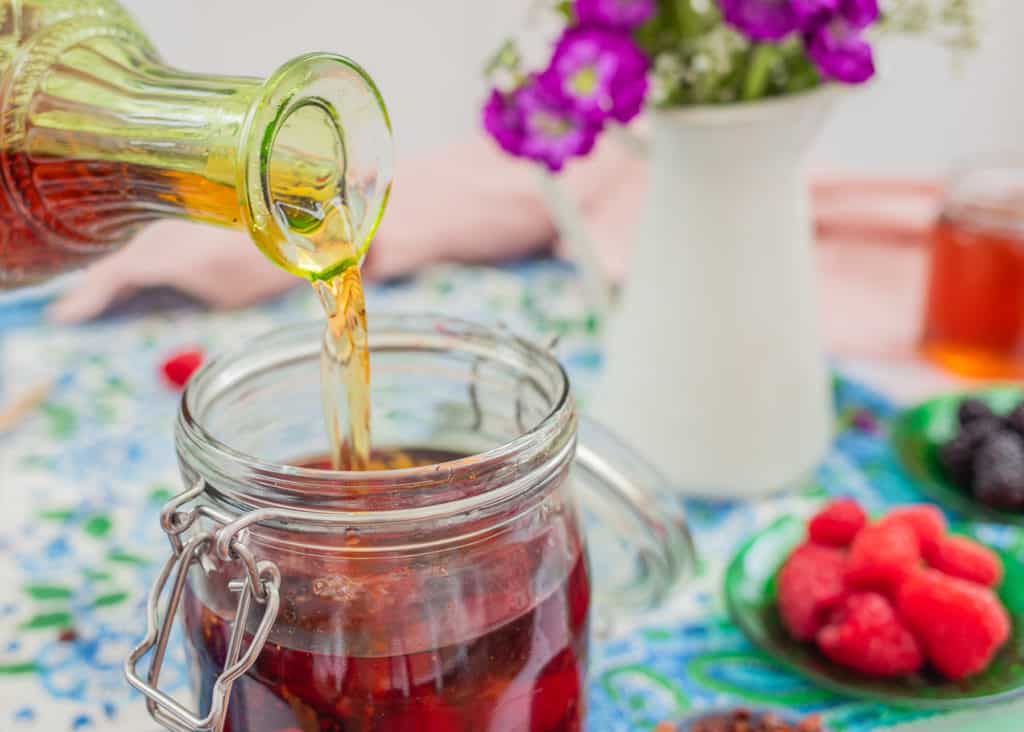
More Than Food
What we create from the earth’s harvest helps shape who we are and what we love. It sets the scope of our taste buds, priming our palate for which foods we crave and find comfort in. It provides our basic nourishment for a strong body and vibrant mind. For me, it also provided something that I can’t really name. What was I fed as I sat in front of giant bags of walnuts, cracking and eating them with my grandparents? More than food was given to me at the table where we dined on fish that my dad taught me how to clean and cook.
The need to harvest, create, and give away was embedded in my being. The ritual of picking blackberries in August is etched in my cells. I get a little cranky if the summer is coming to an end and I haven’t made my annual pilgrimage to gorge at the blackberry patch and make pies. Each season holds a craving to honor what has ripened. Harvesting the abundance and sharing it brings me such joy.
“What we create from the earth’s harvest helps shape who we are and what we love.”
When we don’t grow up with seasonal food rituals, then it can be a challenge to know what to eat when. It is easy to fall into the trap of eating all foods all year around just because they are available in the grocery store. The strawberry festival is in April; what are the health and environmental implications of having access to a plateful of strawberries in December? Tomato tasting day is in August; do I really need fresh tomatoes on my sandwich in February?
The perpetual deluge of advertisements tranquilizes any concern we may have about the chemicals and pollution involved in providing all fruits and vegetables during all seasons. We slip into eating what the media tells us to, not knowing what healthful, seasonal food really feels like in our body. My grandparents still hunted and fished for wild foods. I got a taste of what it meant to harvest and eat wild, seasonal foods; but these were marginal events, and most of our food came from the store. How do those of us who grew up in households with a microwave and canned food make the change?
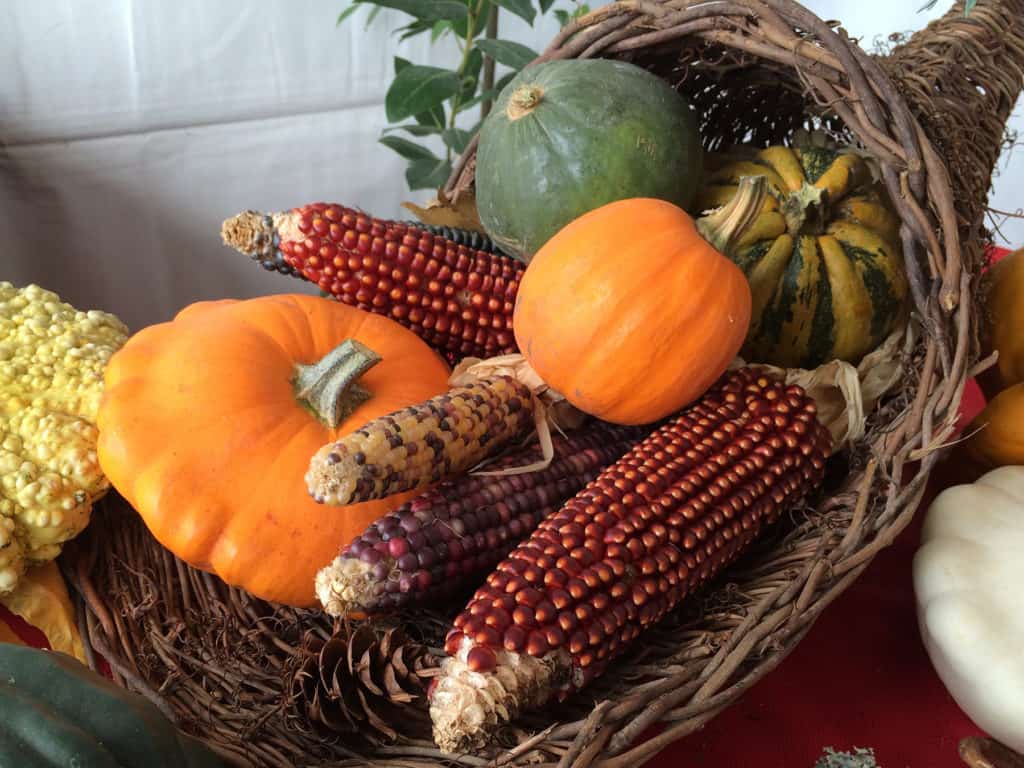
Reclaim Your Food Culture
Wherever you live, there is or was a river of wild or cultivated local food and herb harvest for you to dive into. Get into the kitchen with your family and reclaim your food culture and seasonal food rituals.
When the apples are ripe, make apple cinnamon pie. When it is almond season, make herb-salted almonds. If you live in the heart of a city, befriend someone with a fruit tree or a planter box full of so much sage that one family can’t possibly use it all, frequent local farmers’ markets, or grow your own herbs in a window box or community garden. You will be inspired by the wonder of nature and how its gifts manifest in your kitchen as a way of life.
“The knowledge of how to enjoy the earth’s generosity to fortify ourselves and our loved ones is the inheritance of being human.”
To this day, I love to find the trees that no one has harvested, glean the fruit that litters the ground, and transform this abundance of free food into jams and dried fruit for the lunch box. Summer’s magnificence fills my shelf with a dozen herbal vinegars, and wild bay leaves gathered in autumn unfold their flavor into soups all year long. These small rituals guide our lives. I keep a watchful eye for what the earth has to offer, paying my respects by nourishing my body and soul with the harvest.
The knowledge of how to enjoy the earth’s generosity to fortify ourselves and our loved ones is the inheritance of being human. If this tradition was lost in your family, you are in luck, because the harvest is still on. The earth hasn’t stopped giving; we have just forgotten how to receive. Start by finding one local food or growing one herb in your backyard or window, see what you can make with it, and go from there. Interview some of the old-timers where you live. What local foods and herbs do they have stories about?
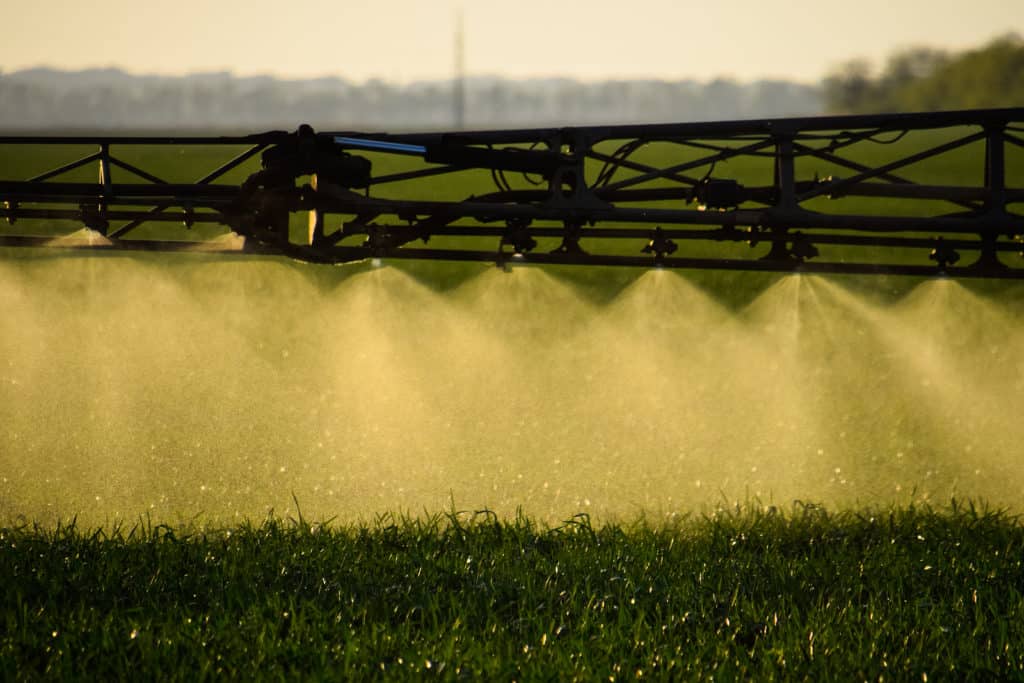
The Dangers of Chemicals
The joyful journey of practicing seasonal food rituals and cooking with herbs is more than creating delicious and nutritious food. It is my pathway toward awareness of how to live in integrity on this earth. What does it mean to use whole foods and whole herbs as a lifestyle practice dedicated to healing? From the garden to the kitchen, we nurture life. We amass the health and wealth that benefits us for now and what is to come.
During the past century, our love affair with chemicals has shaped much of our lives. The food we eat, the medicine we take and the beverages we drink are processed and made with thousands of man-made chemicals. Our use of chemicals has come with many advantages and advancements, but our extended exposure to them has affected us in ways that we can’t even begin to comprehend.
“Practicing seasonal food rituals and cooking with herbs is a pathway toward awareness of how to live in integrity on this earth.”
By indulging in chemicals this way, we have disrespected ourselves and the plants. The damage done by chemical fertilizers, pesticides, herbicides, and genetically engineered seeds is reflective of the loss of integrity in our relationship with the plants. We poison the plants and denature them to the point where we have not only shattered our covenant with the plant world but also our promise of the right to health for our children.
We have polluted the air, soil, and water and all life that is sustained by these elements. The chemical methods of food production are degenerative in nature, wreaking havoc on our health and vitality. The rampant chemical waste poisons our body, our children’s bodies, and the environment of those not yet conceived.
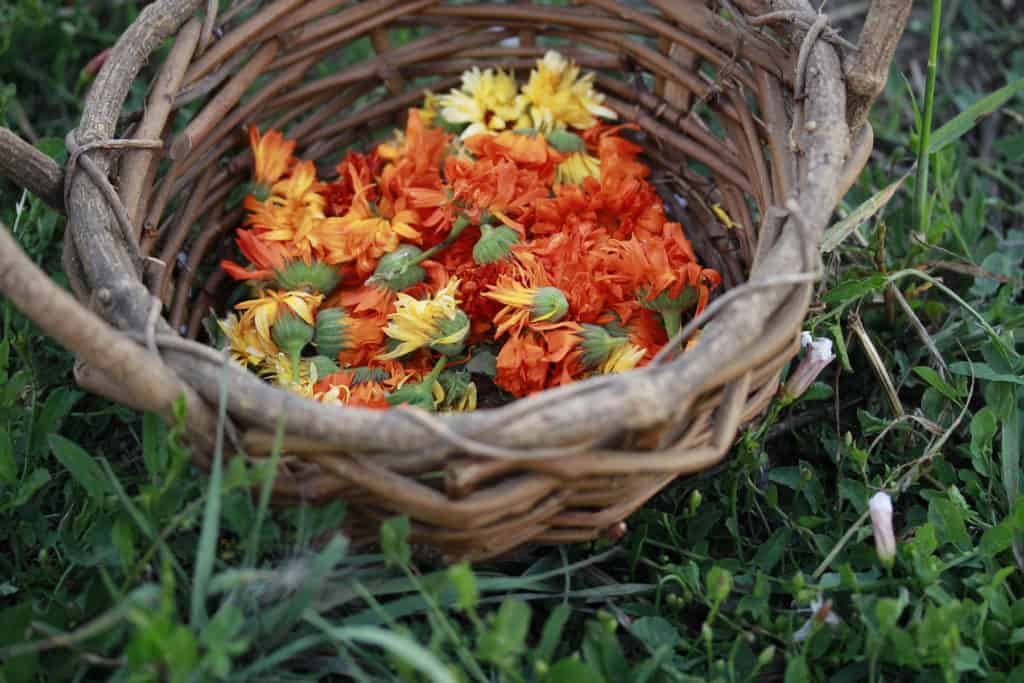
Sustainable Solutions
I could get depressed if I dwell on the problem for too long, so I have learned to remain steadfast and focused on solutions: simple solutions that are attainable within our home and daily lives. The commitment to a lifestyle of using sustainable foods, healing herbs, local harvests, and seasonal food rituals is a choice that has broad-reaching implications in every aspect of our lives.
In recent years, there has been an explosion of awareness about the importance of local, organic, and sustainable food. Buying food from people we know and reducing our carbon footprint by shipping food a minimal distance to arrive at our tables have become central issues. Sustainable care of home ailments is the next step in this groundswell of demand for organic food and a healthful lifestyle.
“Learning to use the herbs for health and wellness is an elemental component in the movement toward sustainability.”
Once the vegetable garden is established, it is just as easy to grow medicine as it is to grow food. Food and medicine cultivation are intricately related and grow side by side. There are a variety of medicinal herbs that attract beneficial insects to the garden. Many herbs pair well with vegetables and are cultivated as companion plants for successful organic vegetable gardening. Learning to use the herbs for health and wellness is an elemental component in the movement toward sustainability and reducing our dependence on chemicals and processed substances.
The garden and kitchen hold a central place of importance in the economy of your home and your family’s health. As the seasons go around and we notice which herbs grow well and promote health, we are assembling a base of body/earth knowledge that is empirical in nature. What is the best way to grow an herb? What are the most efficient harvesting methods, and what is the most effective way to preserve and dispense the spice cabinet? Direct perception guides us; we know what works through observation and experience. This is the knowledge that is accumulated over time and is passed on from generation to generation.
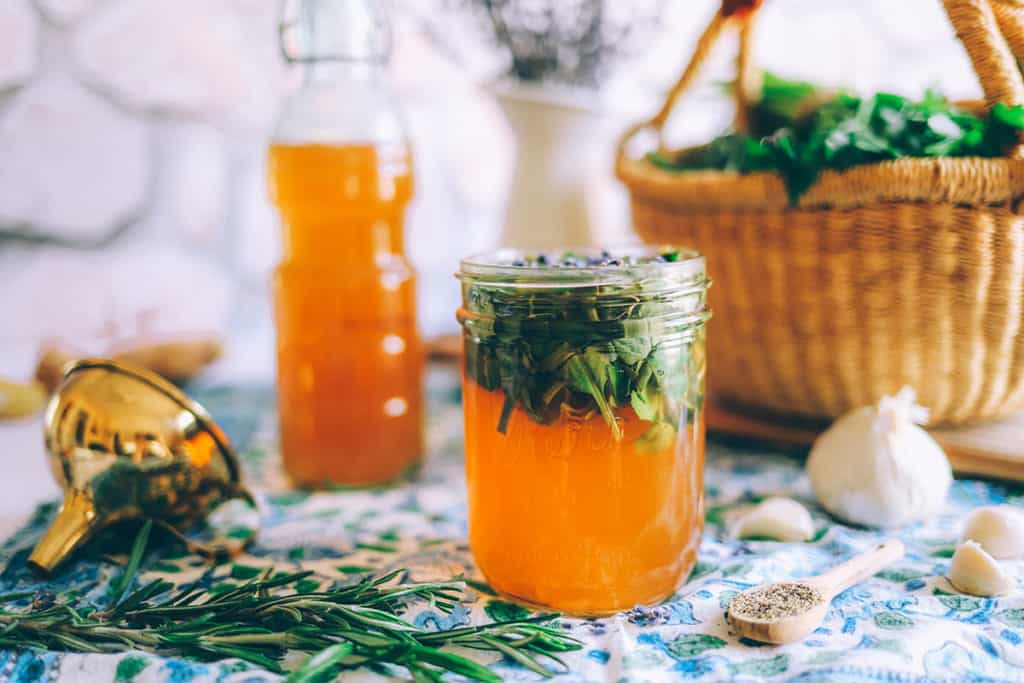
The Herbal Kitchen
The herbal crafting that is abundant in my food preparation is an embodied art of asking, “How do I better understand the food and medicine that the earth provides? How do I better know and care for my body?” Our seasonal food rituals and the culture of our kitchen environment is space we create to nurture and care for ourselves and our family.
Are you ready to breathe magic into your kitchen—and greater wellness into your home—by learning how to infuse every meal with healing herbs and spices? With simple, creative recipes and time-tested tips, My Herbal Kitchen Online Course will teach you how to support your family’s health with medicinal meals. Start building your herbal kitchen today.
